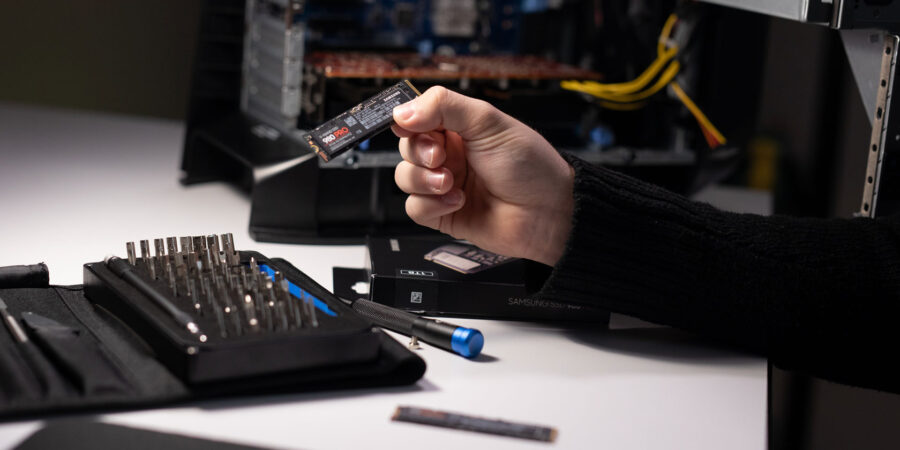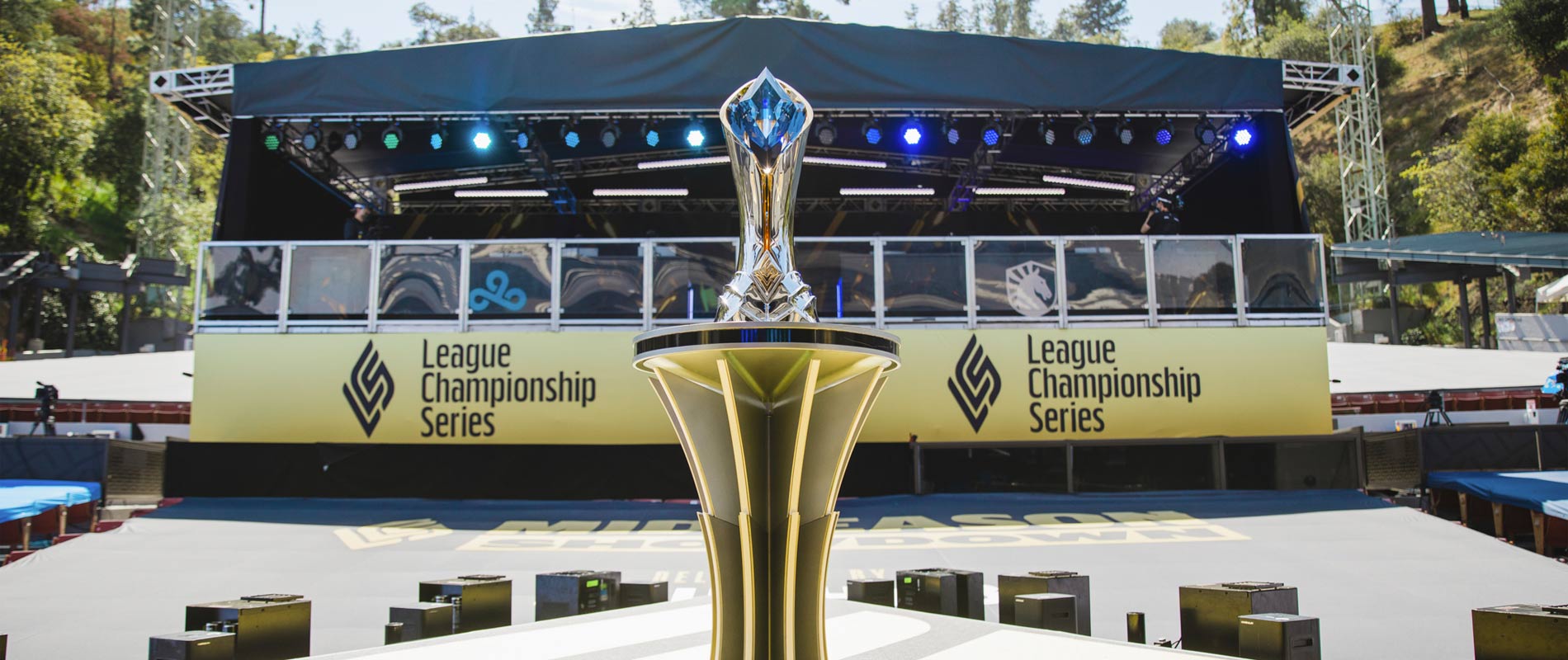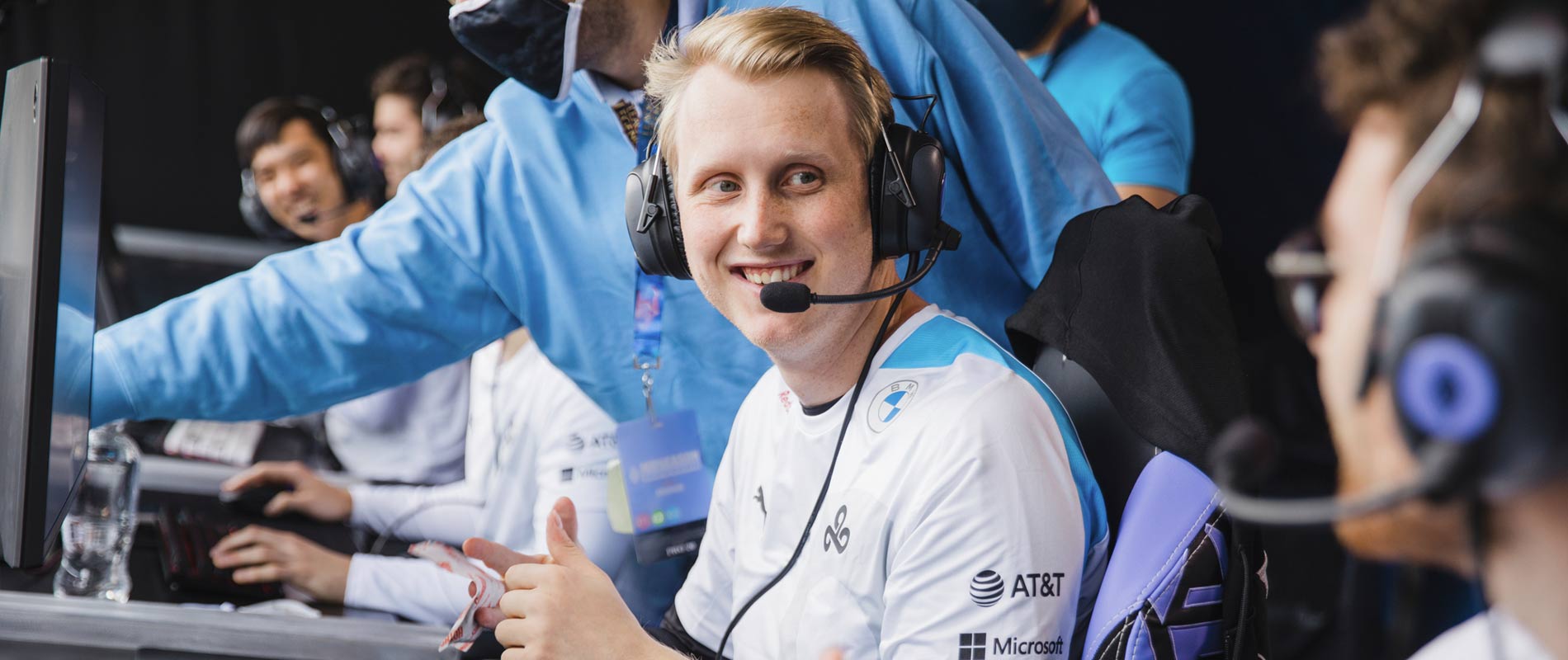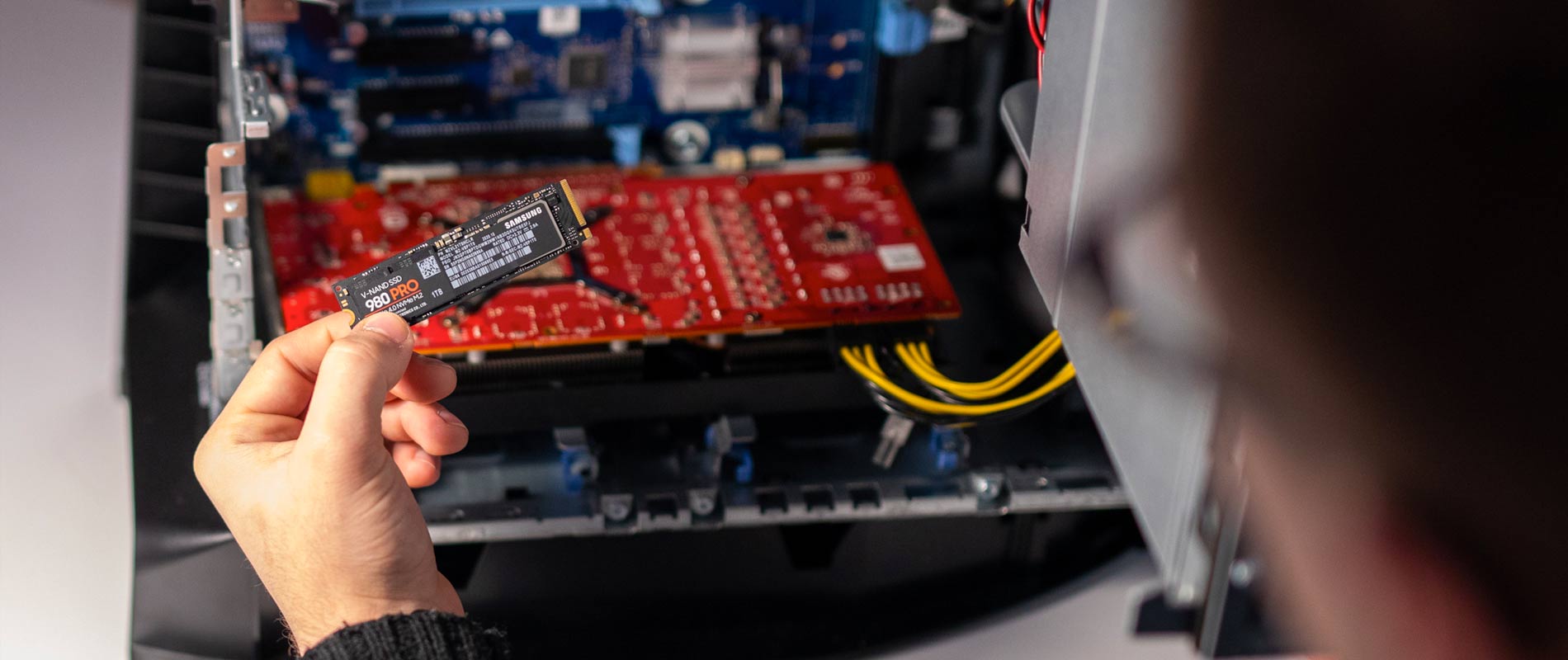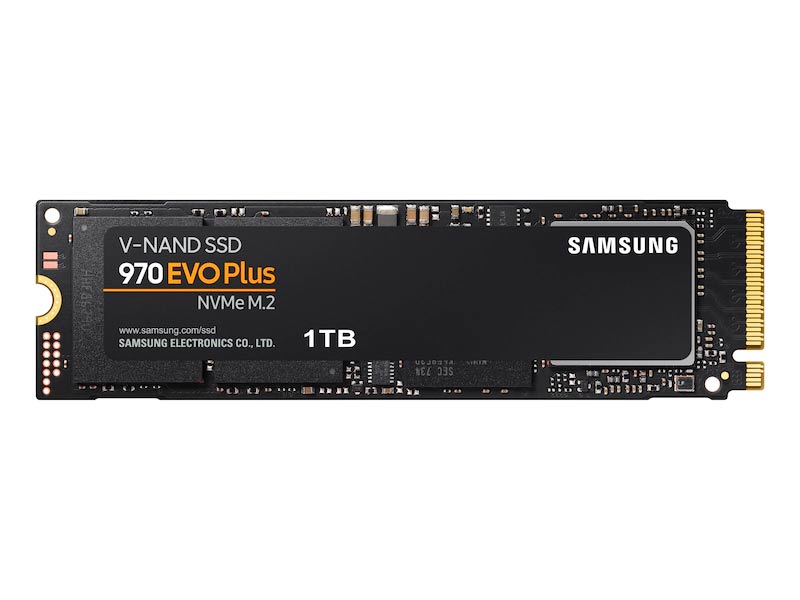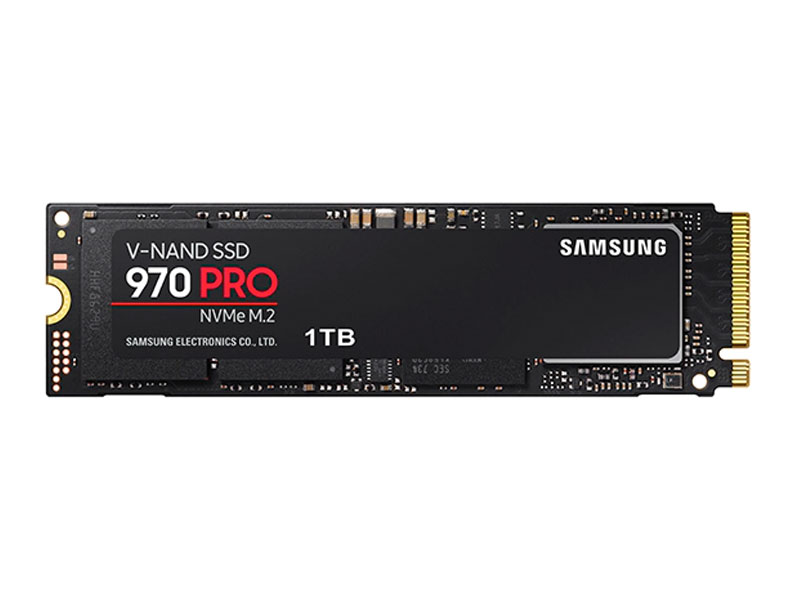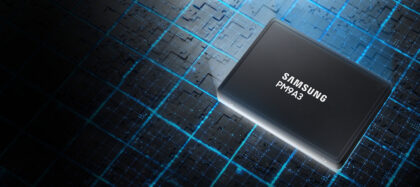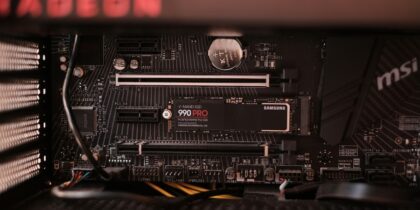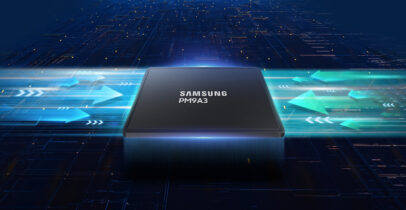
The Challenge
The League Championship Series (LCS) holds esports competitions across North America. Its in-house systems, especially storage drives, constantly take a beating as dozens of PCs are packed and unpacked. This has resulted in lengthy delays and major competition interruptions, which make for an ugly scenario in a packed arena filled with thousands of screaming fans.
The Solution
It quickly became apparent that traditional spinning disk media simply couldn’t cut it in the competitive gaming world. Those devices can’t handle the constant movement from location to location, but they also just can’t keep up with the rigors of a live gaming tournament. Looking for a new option, the LCS tapped Samsung for its solid state drives (SSDs), installing them in every PC on the esports circuit.
“What we found with Samsung drives was reliability.” —David Chan, esports IT manager at League Championship Series
The Results
The LCS hasn’t had any storage-device-rooted issues during its broadcasts since the transition to Samsung’s 860 PRO SSDs back in 2015. Those drives have been bulletproof. The quality has stayed consistent, too: The drives had essentially the same read/write speeds at the end of year five that they had on day one, according to the LCS.
More recently, the LCS upgraded its PCs again, installing the Samsung 970 NVMe® M.2 SSDs, including the 970 EVO, 970 EVO Plus and 970 PRO. It will also roll out Samsung’s 980 PRO, with the PCIe® 4.0 interface for unstoppable playing read/write speed of 7,000 MB/s and 5,000 MB/s, respectively.

About the LCS
The League Championship Series (LCS) is North America’s largest professional esports league in the world’s most-watched esport: League of Legends. Now in its ninth year, the LCS is the third most popular major professional sports league among 18- to 34-year-olds in the United States. In 2021, the LCS kicked off with a refreshed look and tagline — “Made By Many” — to celebrate the fans, pros and teams that support and inspire us to be the future of sports.
The Challenge
Big problems on a huge stage
Online gaming — and esports competitive gaming in particular — has exploded in recent years. Game developer Riot Games capitalized on the trend early on, creating a league for elite gamers and bringing it on the road. Called the League Championship Series (LCS), it brings together 10 professional gaming teams, each with five players, who compete eight months out of the year for an LCS Championship title. All told, there are about 15 competitions a week. There are also qualifying tournaments, where up-and-coming players can compete to make it into the big leagues. When taking competitions on the road, the LCS typically transports about 60 PCs from place to place, including systems for every individual player and supporting hardware to run and stream the games to the stadium audience. The equipment sees a lot of miles in a typical year, says David Chan, esports IT manager at Riot Games.
During the course of a season, these PCs get quite a bit more wear and tear than under normal circumstances. “That’s why we care so much about how confident we can be that something will survive, how confident that it will still perform after that wear and tear,” Chan said. “In the early days of esports, there was a running joke, like, ‘Get to the competition and something goes wrong — you’ll get pauses, you’ll get a blue screen.’ In our first couple years, we didn’t do the best job of spec’ing out, and we ran into a lot of issues.”
One of the main issues was tied to hard drive reliability. Since the events moved from venue to venue, the hard drives were getting physically bumped around constantly. “What we were using just wasn’t surviving the rough treatment we were putting them through,” Chan said. These short circuits naturally affected gameplay — never a good thing when competitive gamers are involved. A single game pause or slow down — let alone a full system crash — could create a ripple effect, lowering the quality of the whole event.
“The consequences are tenfold,” Chan said. “It’s super important for us to have extremely high standards for what’s happening on stage. This is an actual sport. One of the things that holds esports back a little is technical problems. In a basketball game, how often would you say there’s a problem with the hoops or something wrong with the ball? It’s such a rare occurrence that nobody thinks about it. That’s what we need to achieve in esports.”
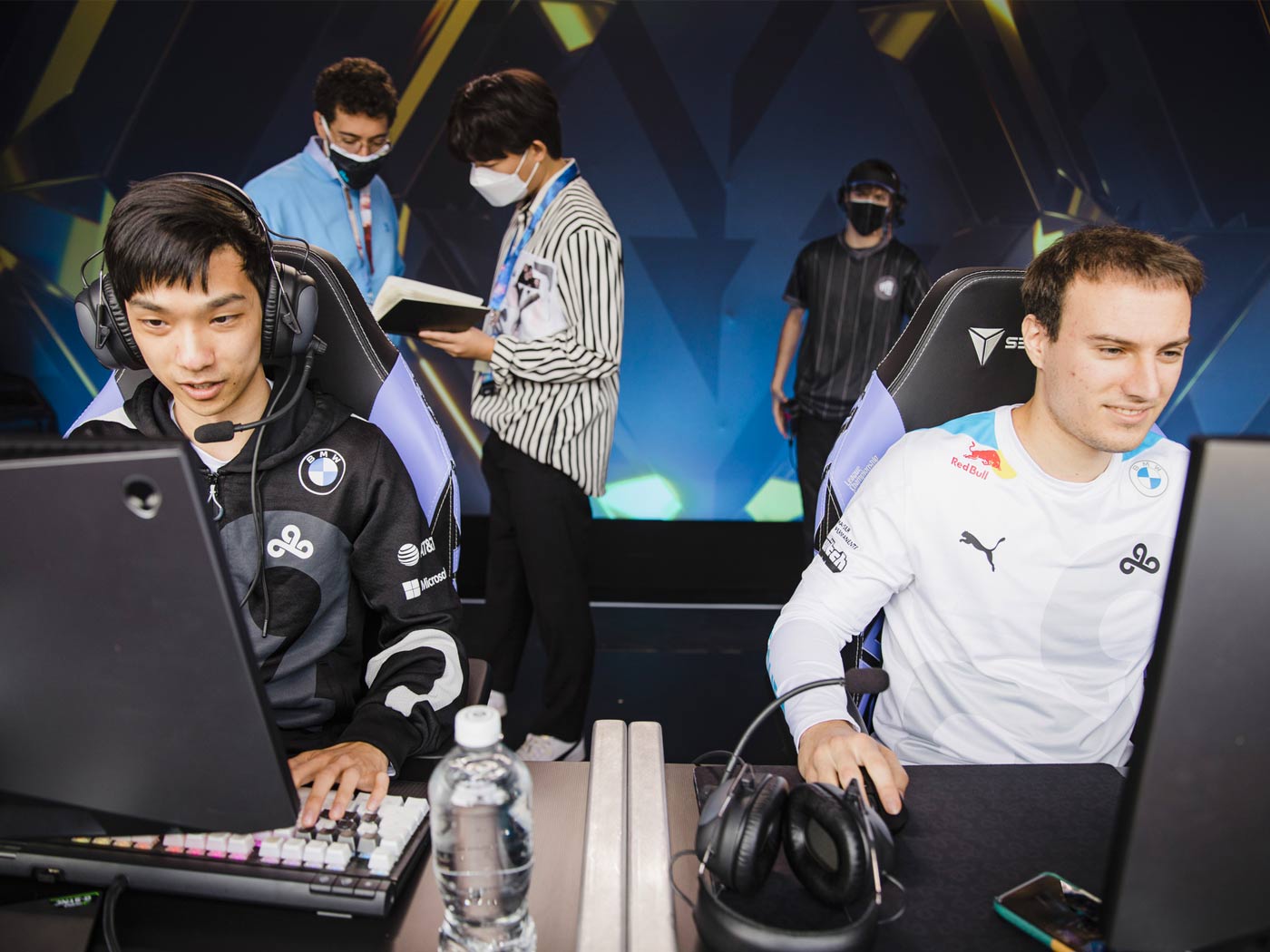
The Solution
Stress-tested reliability that doesn't let up
Hoping to find the best, most reliable options, the LCS put SSDs from every brand on the market into a head-to-head competition. “Basically, we put them through a rigorous test where we simulated what the hard drive would go through if someone used it on an everyday basis for five years,” Chan explained. “But we did it in a span of like a week. One of the things we realized is not every advertisement given on an SSD’s packaging holds true. We quickly saw some hard drives just fall off. Either they would stop working entirely or their average read/write speeds would drop over time. What we found with Samsung drives was reliability. They kept their high read/write speeds and consistent longevity.”
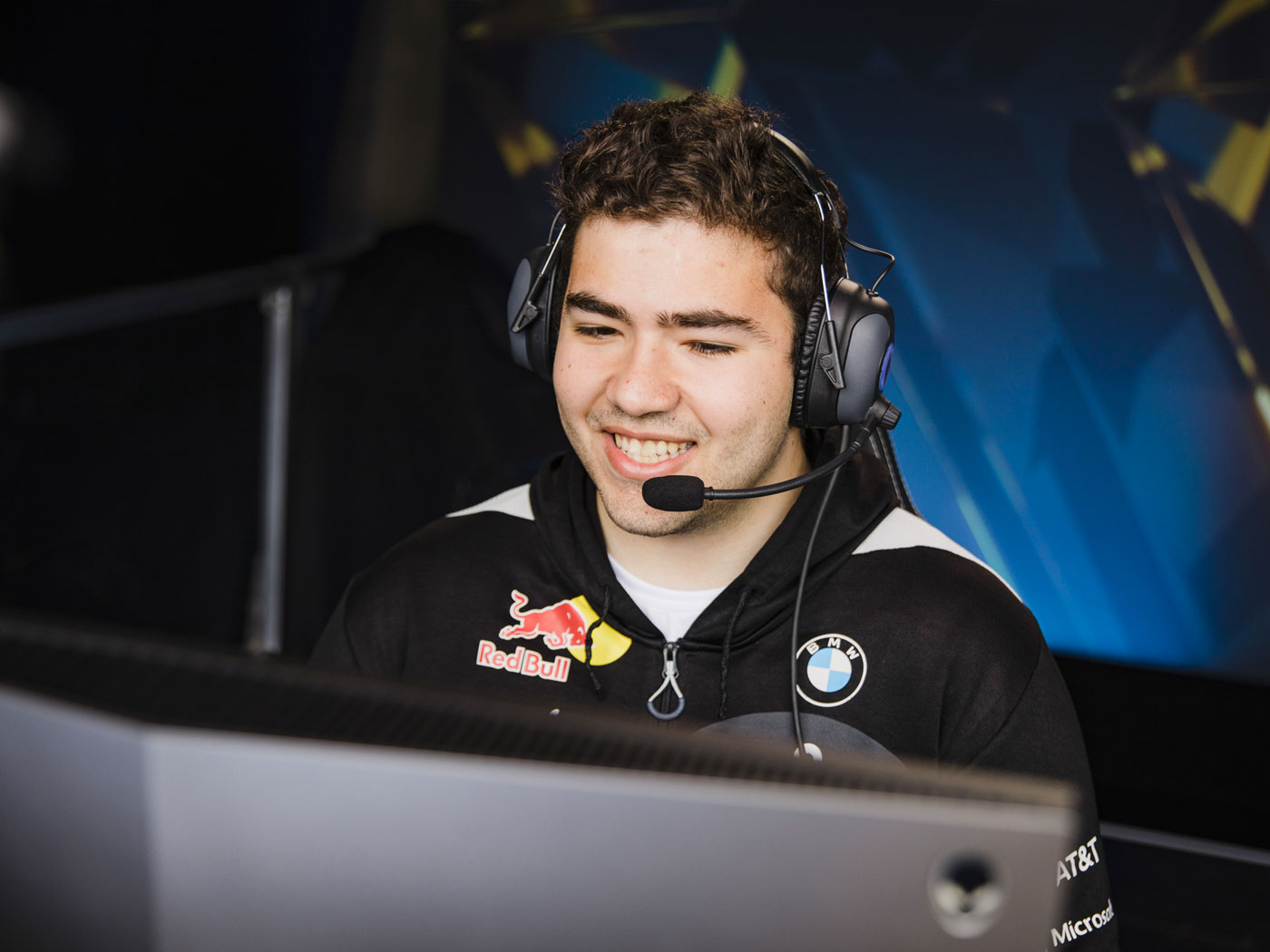
Samsung’s SSDs are perfectly optimized for online and competitive game play. They feature:
- High V-NAND performance and power efficiency for exceptional endurance in your computer — and in the battle arena
- A Dynamic Thermal Guard algorithm to help ensure ideal operating temperatures, which are automatically monitored and maintained to keep games running smoothly
- Solid performance and speed during crucial split-second reaction times
- High-performance bandwidth and throughput for heavy-duty applications in gaming, graphics, data analytics and more
- A compact M.2 2280 form factor, which can be easily plugged into desktops and laptops for maximum board design flexibility
The Technology
970 EVO Plus NVMe® M.2 SSD 1TB
High-performance, highly reliable NVMe® M.2 SSD featuring exceptionally fast sequential speeds and outstanding endurance.
970 PRO 1TB
High-capacity, highly reliable NVMe® M.2 SSD designed for heavy workloads and engineering applications.
The Results
High-intensity competitive gaming with no hiccups
“We ended up picking the Samsung 850 and 860 EVO because they met our needs,” said Chan. “It gave us confidence that after a year or two of use, it would still be just as good as it was right out of the box. Plus, it had a nice price point where we felt confident that when we needed to expand, we’d have the budget to replace, expand or swap out if needed.”
Chan said the biggest change is in the complete lack of outages and problems the company now encounters. Prior to switching to Samsung SSDs, the LCS had a lot of hardware- and hard drive-related issues. Chan says that the improved uptime holds true even when packing boxes for the Samsung SSD systems were beat up or damaged. The Samsung SSDs kept the tournaments up and running without a single issue from the day they were installed on the competitive systems and PCs.
More recently, the LCS upgraded its PCs again, installing the Samsung 970 NVMe® M.2 SSDs including the 970 EVO, 970 EVO Plus and 970 PRO. Now the company is looking forward to installing the newest Samsung SSD — Samsung’s 980 PRO — soon. “One of the reasons we really like using Samsung SSDs is that we’re super confident that once they’re in the PCs, we don’t have to worry about them until we switch out to our next generation,” Chan explains. “We do retest what’s on the market every couple years, and even so, Samsung just keeps coming out on top. We’re excited to stay with the Samsung family of SSD drives.”
